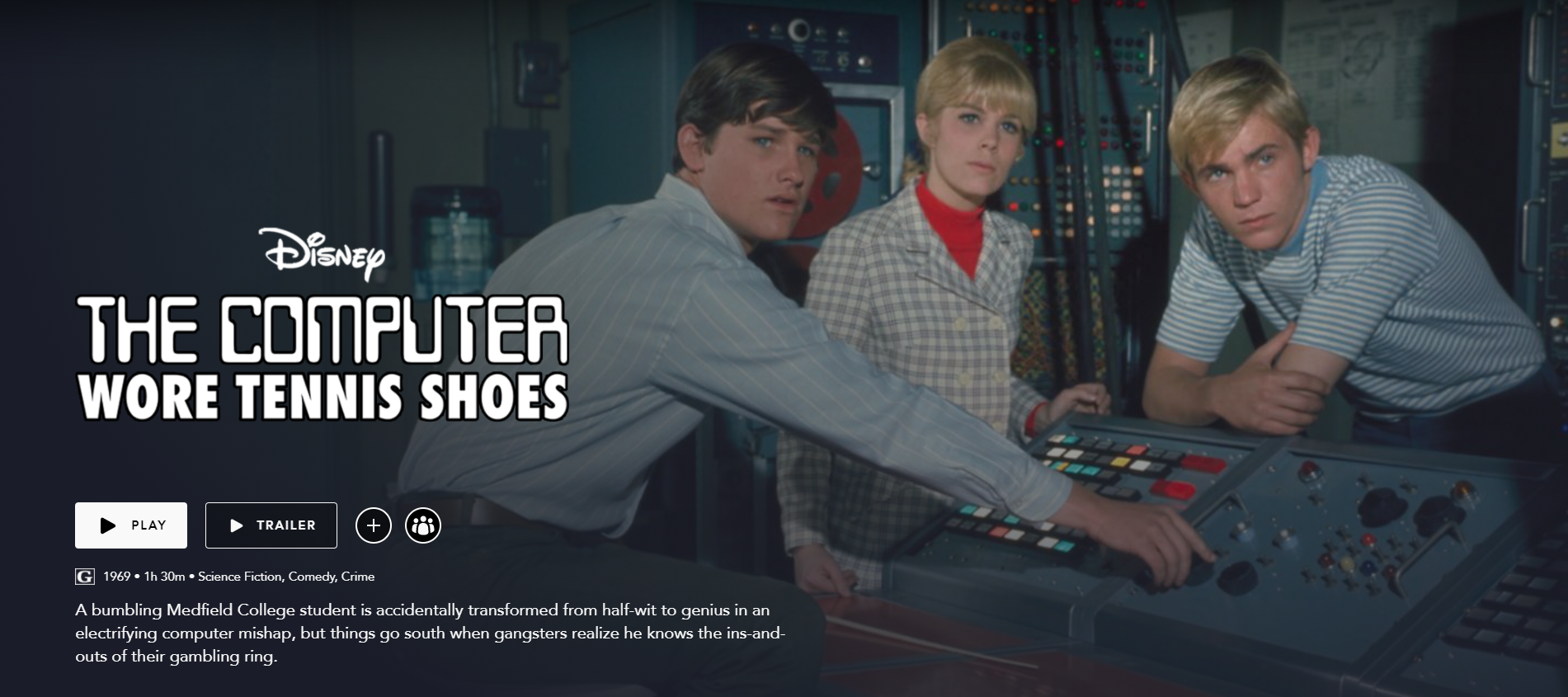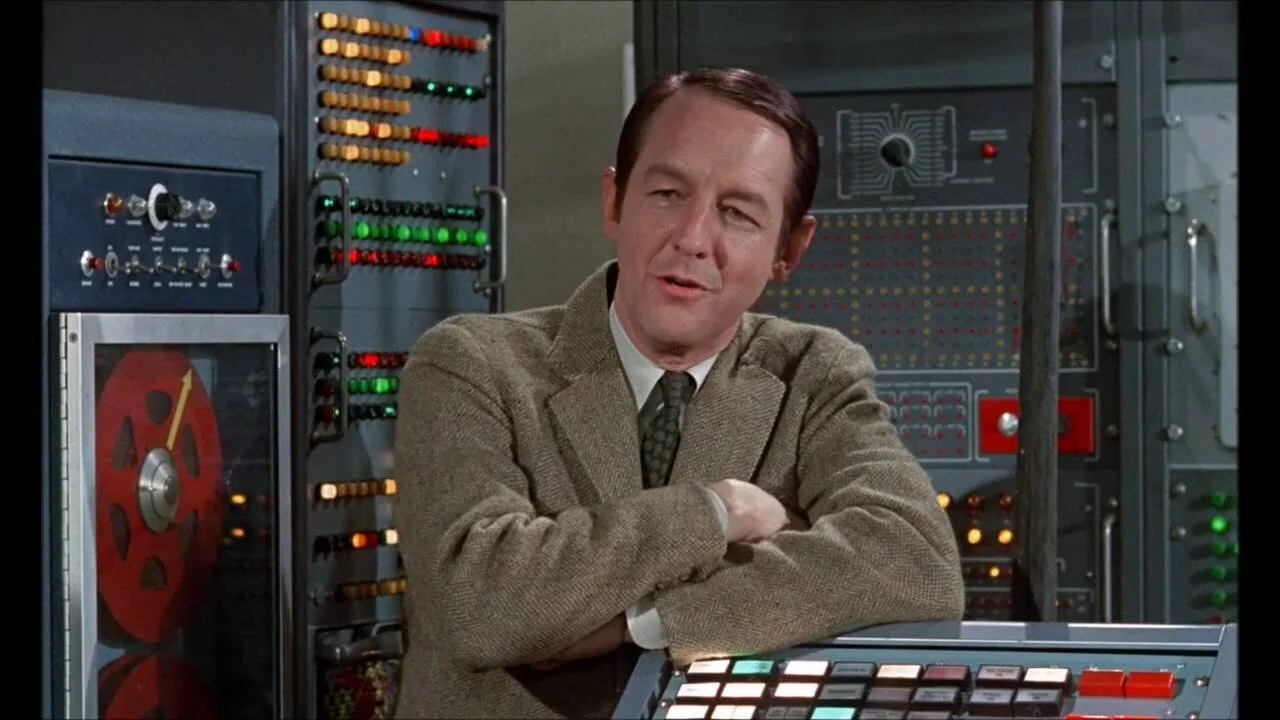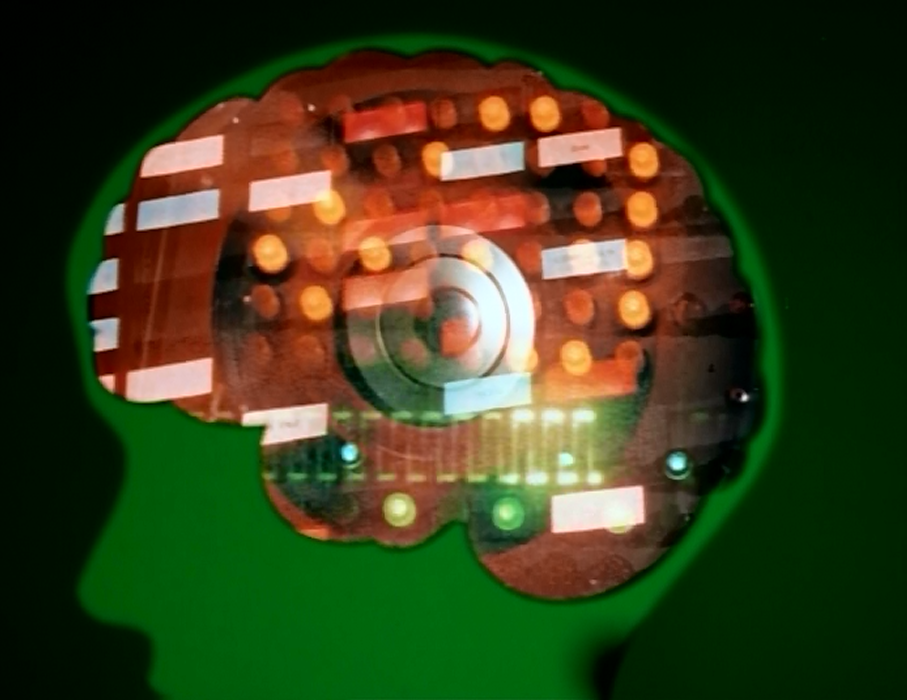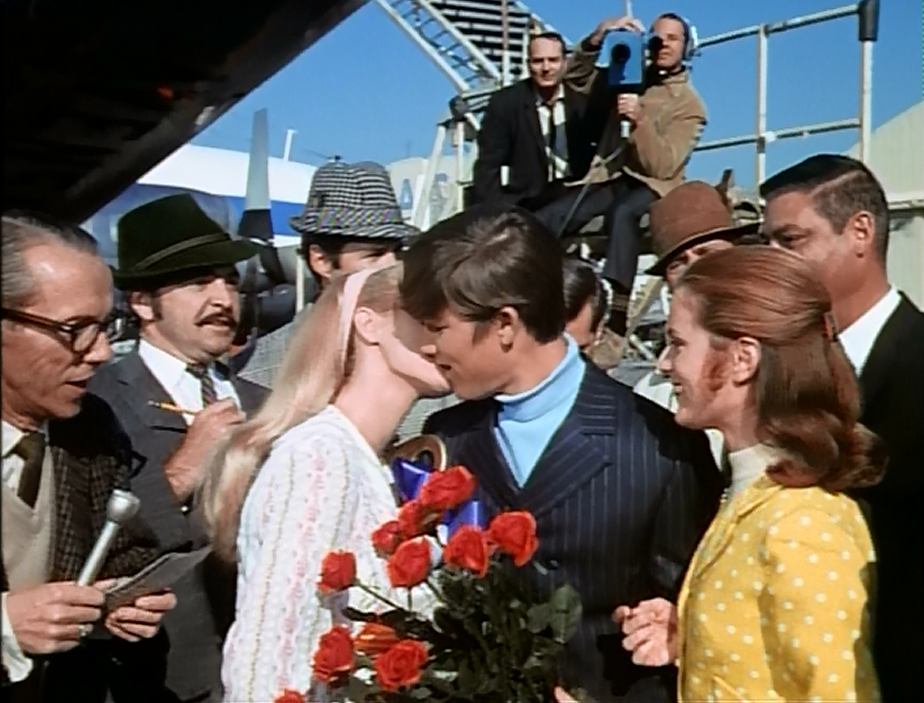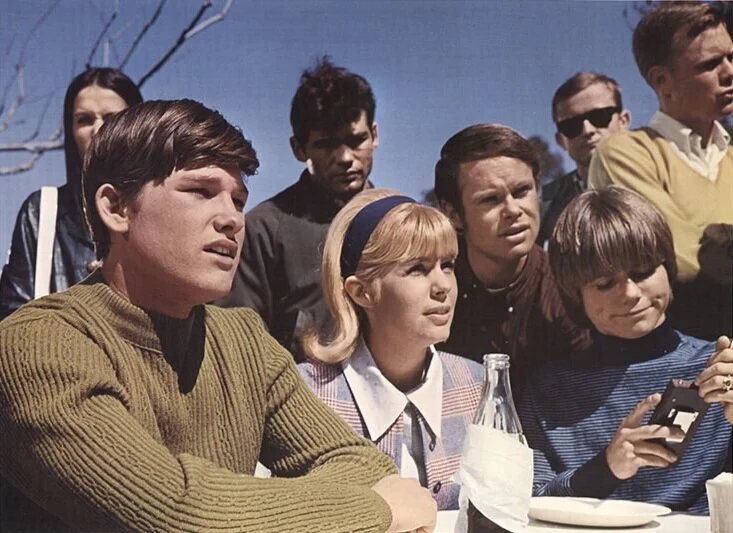Review: The Computer Wore Tennis Shoes (1969) (DMC #46)
Talk about a throwback! Last night we watched The Computer Wore Tennis Shoes, the 46th film in the Disnerd Movie Challenge! (And can we just say how thankful we are that computers have become so conveniently smaller?) Our synopsis is below, but if you watched with us last night, feel free to skip ahead to our review.
Synopsis
During a meeting at Medfield College, Professor Quigley tries to convince Dean Higgins to purchase a computer for the college so it can remain academically competitive, but the dean shuts down the request because the school is short on funds. He continues to name several students who are to be placed on academic probation. Meanwhile, those same students, including Dexter Riley, are listening into the meeting via a walkie-talkie. Dexter comes up with an idea to ask his former boss, wealthy businessman A.J. Arno, to donate a computer to the college. A delegation of students go to ask Mr. Arno for the computer, but Mr. Arno initially declines because he’s already pledged to give the college $20,000—twice the cost of a computer. After the students leave, Mr. Arno goes to a secret section of his office where computers are tabulating profits from Mr. Arno’s illegal gambling operations and he tells one of his employees not to give the $20,000 to Medfield. Instead, Mr. Arno informs Dean Higgins that he’s donating the computer in lieu of the money, much to the dean’s frustration. After installing the computer, Professor Quigley demonstrates what the computer is capable of when a part breaks, causing the computer to malfunction. Dexter volunteers to get a replacement part, but when he returns to the school that night during a storm to install the new part, he accidentally electrocutes himself on the computer. When he goes to sleep that night he begins beeping and rattling off Mr. Arno’s gambling data in a robotic voice. At school the next day, Professor Quigley can’t get the computer to work. When the students take their assessment exam, Dexter finishes the test in record time with a perfect score—unheard of for a 90-minute exam that no student has ever finished. A doctor examines Dexter and shows Professor Quigley and Dean Higgins that Dexter’s brain is now a computer. Dean Higgins, hoping to use Dexter’s newfound intelligence as publicity for Medfield, arranges a televised interview where Dexter correctly answers complex questions from experts in various fields. At the television studio, the dean of State University, Dean Collingsgood, takes an interest in Dexter, making Dean Higgins worry he’ll try to steal Dexter for his college.
Dexter begins touring the country to showcase his intellectual ability. Meanwhile, Dean Higgins is approached by the organizer of a major academic competition—one where the winning school could win a large sum of money. There’s just one problem: Dexter hasn’t re-enrolled for the next semester. When Dexter returns from his tour, he blows off Annie and his other friends to take a meeting with Mr. Arno, who takes advantage of Dexter’s computer brain to win big betting on horse races. Mr. Arno’s lackey, Chili Walskey, takes Dexter to one of Mr. Arno’s illegal casinos for dinner, while the deans from both colleges follow. Once they all arrive at the casino, police raid the establishment, arresting Dexter, Mr. Walskey, and both deans. In prison, the deans fight over who should get Dexter, and Mr. Walskey tries to convince Dexter to work with him, but when Dexter’s friends bail him out, he realizes it’s his friends that really matter, not these men who are trying to use him for their own personal gain. He apologizes to his friends and tells Dean Higgins he’ll sign the enrollment forms at Medfield the next day so he can keep going to school with his friends. Dexter’s friends help him study encyclopedias in preparation for the upcoming competition. Professor Quigley presents a list of high-achieving students Dean Higgins wants on the academic team alongside Dexter, but Dexter chooses his friends to be on the team with him instead. At the first round of the competition, Dexter tries to feed his friends the answers so it looks better, but his friends struggle, so Dexter has to answer every question himself. After winning the first round, Dean Collingsgood tells Dean Higgins to withdraw Dexter from the competition because of his unfair advantage, but Dean Higgins refuses. At the next competition, the answer “applejack” causes Dexter’s computer brain to take over, and he begins rattling off the names of Mr. Arno’s establishments. Mr. Arno, watching the competition on television, orders all the named establishments shut down, and tells his men to get Dexter. Mr. Walskey forces Dexter to drive them both to Mr. Arno’s place, but when Dexter doesn’t show up for his date with Annie, she calls the cops, Professor Quigley, and Dean Higgins. Dean Higgins suspects Dean Collingsgood kidnapped Dexter. Dexter’s friend Pete plays back a recording of Dexter talking and beeping in his sleep so that Annie can hear it. The realize it’s the same gibberish he rattled off on television, and realize “applejack” is code for A.J. Arno—he must be the one who took Dexter. They give the recording to their friend Skyler to deliver to the police while Pete and Annie stakeout Arno’s building and follow Mr. Walskey to a house where Dexter is being held. Annie and Pete overhear Mr. Arno’s men planning to drown Dexter the next day. They come up with a plan to rescue Dexter while the cops begin to unravel Mr. Arno’s illegal gambling network.
The next morning, Dexter’s friends pose as painters so they can search the property where Dexter is being held. Meanwhile, the academic competition goes on as scheduled, but without Dexter, the Medfield team struggles. Back at the house, Dexter’s friends manage to fool Mr. Arno’s lackeys, but when Mr. Arno arrives, he sees right through their ruse and identifies them as Dexter’s friends. The friends manage to find a trunk with Dexter trapped inside, but in trying to get the trunk out of the building, they accidentally let it drop from the second story window, causing Dexter to bang his head. The friends hurry onto their truck with Dexter, but Mr. Arno and his men pursue them. The friends toss paint cans and other objects from the back of the truck, eventually forcing Mr. Arno and his men off the road. The friends make it to the competition, but when they get Dexter out of the trunk, he has a ringing in his ears and he can hardly walk after being cramped inside the box for so long. They carry him into the studio where he rejoins the academic team, but it’s a struggle for him to force out the answers to questions, to the point where he completely crashes with only a few minutes left in the competition. When it comes to the final question, one of Dexter’s friends and teammates realizes he finally knows the answer to a question, and his final answer scores the victory for Medfield. When Mr. Arno and his men finally reach the studio, the cops arrive and arrest them. A few days later at Medfield College, Dexter, now back to his normal, computer-free self, sits with his friends listening in on yet another of the dean’s meetings. The dean wants to invest the winnings from the competition in the school’s plumbing, turning down Professor Quigley’s request for an electro-helio-spectrograph, much to the students’ disappointment. As the students disperse, Annie makes Dexter promise not to fool around with an electro-helio-spectrograph if the school ever does get one.
Thoughts Before Watching
Megan: I’ve never seen this movie before, though I feel like my dad may have wanted us to see it at some point…or maybe that was the ‘90s TV movie remake…? In any case, I don’t quite know what to expect with this one. I am a little concerned this will date itself, though, given how advanced technology is now compared to the 1960s when this film was created.
Kevin: I saw the 1995 remake of this movie a couple times when I was a kid, and I remember that the main character was also named Dexter Riley. I also could have sworn that the movie was called The Computer Who Wore Tennis Shoes. Apart from that, I’m not at sure if the original movie follows exactly the same way as the remake since this is my first time watching this. It’s interesting to see a young Kurt Russell make an appearance. Like Haley Mills, Tommy Kirk, Bobby Driscoll, and plenty of others before him, Kurt would become another young actor that would grace the face of Disney films for several years, eventually becoming the studio’s top star in the 1970s. (I really wonder why Disney+ doesn’t have Follow Me, Boys!). He has done so many projects with Disney throughout his career. I’m looking forward to seeing one of Kurt’s earliest films with the company.
Thoughts After Watching
A fun concept, but it shows its age
Megan: It’s not too surprising to me that a film about computers made in the 1960s wouldn’t hold up as well in 2020 where computers are smaller, more affordable, and such a part of everyday life (I mean take this blog—whether you’re reading this on a laptop, desktop, tablet, or cell phone, you’re reading this on a computer). However, it is interesting to see the giant machines that computers used to be, and it makes sense that something of that magnitude would cost a college $10,000 whereas today a school could probably get more than 20 computers for the same amount of money. It’s a bit funny to watch the opening scene and hear the dean and the other men in the room debating whether a computer is a luxury or a necessity. At the time this film was made, perhaps a computer seemed like a luxury, but today—especially during this pandemic where work, school, and our social lives have gone completely virtual—there is no question that a computer is now a necessity. It makes the dean and the older faculty look especially short-sighted when they refuse Professor Quigley’s request for a computer, given what we know of how the world will look just a few decades later.
Kevin: It’s amusing to think what the first iPod looked like when it came out a decade ago, and to now see what newer iPhones look like. But it seems like that transition was not nearly as incredible as the transition from bulky computers the size of bookshelves to, well, something like an iPad. In fact, I think our generation takes these leaps in technology for granted because it’s just a given these days. The computers we see in The Computer Wore Tennis Shoes look so out of this world to me that they may as well be total science fiction, but that’s only because I wasn’t alive to see them. As for folks like my parents, I know my dad has said that the changes in technology such as computers was really fascinating. The dean and the other older faculty members rejecting the proposal for a computer, or any kind of technology, is just an example of a recurring trope of older generations being skeptical of technology. While Professor Quigley isn’t all that young, he definitely looks younger than most of the other faculty, so the trope still holds. Like Megan said, the dean is not thinking of the future, and I’ll bet that if we got a continuation of the story we would see him regretting his decision to spend the money on plumbing.
Megan: However, because we do know how computers advance between the 1960s and 2020, it’s hard to fully suspend disbelief for the more science-fiction elements of this story. For one thing, while Professor Quigley’s assertions about humans being replaced by computers with automation is still a topic of concern today, using a computer to open a door, shut windows, and order a specific list of items from the grocery store if it is raining is still a stretch. While there are many smart home features that can automate things like locking doors, turning lights on or off, or setting a thermostat remotely, there are few people who’ve gone as far as programming their homes to automate features according to the weather forecast. Also, placing a grocery order with a computer is now done via a website interface, not a phone, and if it is automated, it’s something like Subscribe & Save with Amazon Prime where a set of items are consistently ordered every X number of days rather than being triggered by the weather. Another story element that was hard to believe was how Dexter’s brain became a computer. Today, many kindergarteners know what a human brain is supposed to look like, and I’m sure the vast majority of people in today’s world know that you can’t simply look into someone’s eye or ear to get a look at their brain. Similarly, if someone were to suddenly have the mind of a computer, I don’t expect you’d be able to see the flashing lights and buttons of a computer, and you certainly wouldn’t be able to see what a person was thinking by looking at a screen. Even the most advanced brain mapping tools of today can’t visually display what a person is thinking the way the doctor, Professor Quigley, and the dean are able to see Dexter’s daydream about a scantily-clad woman in a strange bathtub-shaped car. I found the whole scene with the doctor examining Dexter so unrealistic that it took me out of the world of the story. Knowing what computers are capable of today, it was a real stretch to suspend disbelief during those scenes, though I was able to get on board with the computer-brain concept for the rest of the film.
I’ve never seen the 1995 TV movie version (in fact, before Kevin and I watched this together I didn’t know there was a remake), but it makes me wonder if the 1995 version performed any better in regards to the technological and sci-fi elements. I assume they updated the film to showcase a computer from the ‘90s, but did they also update what a computer’s capabilities might be? Did they revise the computer-brain element of the story to be slightly more believable? It’ll be interesting to find out if Disney ever adds that version to Disney Plus.
Kevin: I would be curious, too. In spite of having seen the remake, I can’t remember whether I thought it was believable or not. What I do remember is that it rehashed a lot of dialogue and gags from the original movie (such as the academic competition question about the Earth’s bodies of water, and the gag of Dexter finishing the test early and then spending his remaining time snacking). I also know that in the remake Dexter loses his computer-brain due to some sort of high frequency sound the main antagonist uses against him. The original movie implies that Dexter’s computer brain “crashes” due to excessive trauma to his head. Without rewatching the remake, I think the way the original movie does this is a little more believable, since it’s totally plausible that a computer would eventually break if you apply excessive force. I’m not entirely sure how much damage a high frequency would do to a computer. On the whole, though, the wacky sci-fi moments weren’t nearly as detracting as they were with Megan. I didn’t really think much about it because the entire concept of the movie was a bit too wacky to be believable anyway. From the plot description and general story, I think it’s far more meant as a very ridiculous “what if” more than anything than any real speculation as to what technology can eventually do, and I think the filmmakers were just having some silly fun. With that said, it is funny when Professor Quigley talks about all the things a computer will eventually do. Hindsight can be hilarious when you look back on what older generations thought technology would be like, only for it to not be the case.
Bechdel Test Fail
Megan: I called it about 15 minutes into this film—this one sadly fails the Bechdel test. While we do have two named female characters with Annie and the dean’s secretary Winifrid, no two females ever appear in the same scene together except when two unnamed girls greet Dexter as he gets off the plane, so there’s never any opportunity for two female characters to have a conversation with each other. Honestly, the female characters feel like they’re token females—thrown in just so the filmmakers could check the box and say they included women, the same way that many films (including this one) have the token person of color. While I actually appreciate that the love interest subplot with Annie isn’t a primary focus of the film, so many of the female elements of this film are unfortunately sexist. For example, there’s those two girls that greet Dexter when he gets off the plane. This is something we see in a lot of films—the pretty girls greeting a male character who’s achieved something and bestowing him with gifts and/or affection. We almost never see the reverse of this, where a woman has achieved something and men are fawning over her, thus creating this sexist implication that men’s achievements are considered attractive to the opposite sex, whereas women’s achievements are not. Then, of course, there is the stereotypical female jealousy that comes into play when Annie sees these two girls greet Dexter on television. The trope is honestly so overdone that it’s a bit boring to see it in this scene, especially since Annie and Dexter’s relationship hasn’t formally been established. Then, of course, there’s Dexter’s daydream of a woman in a bikini riding in a bathtub-shaped car. It’s a bizarre scene to show (especially considering how much that very short scene must have cost the production team) when all it does is objectify the woman as much as the car, which, at least in my case, makes me dislike Dexter. The scene is shrugged off as a “boys will be boys” moment, but the film could have succeeded without it.
Kevin: I agree with this. To go further on the topic of women’s achievements vs. men’s, not only is it implied that women’s achievements are not attractive, they’re implied as directly unattractive. There are several times where a woman doing well isn’t just ignored, but instead is somehow a challenge to a man and to masculinity. There are moments of actual revulsion and jealousy displayed from men anytime a woman does well. Thankfully, this movie is not guilty of that, but it still doesn’t win points for how it treats its female characters. I’m also definitely over the constant forced love, real or implied, Disney keeps injecting into these earlier films. It’s too common from studios during these older eras, and really is like just another tick on the checklist so Disney can say they hit the necessary story elements. Love is great, but you don’t need it with every young attractive male and female in your film in order to get audiences engaged. Platonic relationships work just as well.
Academic achievement does not equal intelligence
Kevin: Basing someone’s worth or intelligence entirely on their grades or academic achievements is very dangerous and damaging. Now, I’m not saying that failing all your classes is a good thing, and there is definitely a connection between high intelligence and academic success. I also understand that the way schools and colleges are designed to succeed is entirely predicated on high test scores and GPAs. However, these things are not the only measures of how smart someone is. If anything, most high marks in school are the result of just working and studying really hard. It’s the result of putting in time and effort. What Dean Higgins ultimately fails to realize is that the students are much smarter than he realizes, and in ways that matter far more than stellar grades. Even the movie description on Disney+ says Dexter is “half-wit,” generally used to mean someone is foolish or stupid. Is Dexter foolish? At times, perhaps. Is he stupid, though? I’d argue not at all, and half-wit still sounds like an incredibly inaccurate and awful word to describe him (although now that I just said it… I just remembered that there was a scene of Dexter driving through a rainstorm while having a bunch of notes posted around the inside of his car and he’s trying to write while driving… okay, if anything, it just means that Dexter may do stupid and foolish things, but that is not necessarily the sum of his character. Dexter and his friends display street smarts and out of the box thinking in order to achieve results. Between the trick with the walkie-talkie both at the beginning and end of the film and realizing Dexter was kidnapped and devising an amazing plan to rescue him, these students show amazing aptitude. And isn’t that really the point of school and education? To teach you how to think, and not what to think? Sure, you can take specific subjects, and those in power can regulate all they want about what subjects are important and which are not, but in the end do the students learn something? It sure seems like the students at Medfield College know enough to succeed, regardless of what their grades are.
Not as interesting as it could have been
Megan: While the film had some funny moments, it feels like a step down after watching comedic gems like The Love Bug and Blackbeard’s Ghost. This film lacks the same situational humor, sure, but I think part of what makes this film fall short is Dexter’s lack of character development. It would seem at first that his flaw is is low academic standing, but then it appears his flaw is neglecting his friendships. His realization that his friends are the most important thing happens at the midpoint when they bail him out of prison, but having this moment so early in the film robs it of a true “all is lost” moment, which in turn dilutes the characters’ ultimate success at the end of the film. It’s hard to say that Dexter truly learns anything by the end. Sure, he’s realized the true value of his friendships, and maybe he’s learned not to mess with technology he doesn’t understand, but it’s a little murky. Also, for all the talk of how Dexter and his friends are academically low achievers, they seem incredibly smart if you ask me. They were the ones who figured out how to bug the dean’s office to listen in on all his meetings. They were the ones who figured out A.J. Arno had kidnapped Dexter because they realized the stuff Dexter was spouting off was linked to Mr. Arno’s illegal gambling operations. And they were the ones who figured out where Dexter was being held and devised a way to rescue him—all before the cops had even figured out what Mr. Arno and his men were really up to. It feels like such a disservice and a complete falsehood to say these students aren’t intelligent. I guess I was just hoping for a bit more from a film that seems to position itself as futuristic and forward-thinking.
